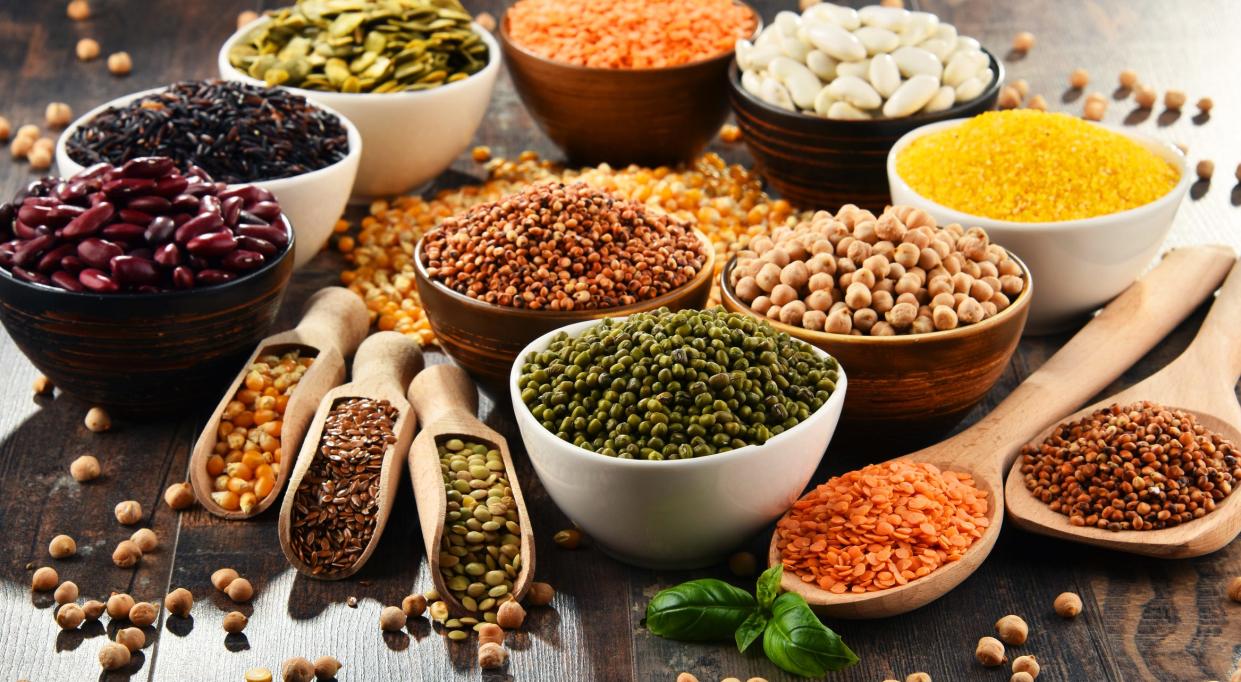One Senior Place: Taking on a plant-based dietary lifestyle could lead to a healthier you

Q: Should I become a vegetarian?
A: Plant-based eating is a dietary lifestyle that focuses on consuming foods primarily derived from plants — like fruits, vegetables, whole grains, legumes, nuts and seeds.
Its skyrocketing popularity has to do with its numerous health benefits, for humans and the environment.
Plant-based diets exclude or minimize the eating of animal products, including meat, poultry, seafood, dairy and eggs.
Let's dive right into this leafy topic!
Previous One Senior Place columns:
The century mark: There's a growing chance you'll live to 100. Here's how to plan
Options exist: Being in pain as you age doesn't mean you have to take medication
Alphabet soup: Breaking down the A, B, C and D of 2023 Medicare open enrollment
Eating styles
There are different variations of plant-based eating, ranging from vegetarian to vegan diets.
Vegetarian diets exclude meat but may include dairy and eggs, while vegan diets exclude all animal products.
Some people also follow a "flexitarian" approach, primarily consuming plant-based foods but occasionally including small amounts of animal products.
Health benefits
Study after study confirms that plant-based eating may reduce the risk of chronic diseases, like heart disease, high blood pressure, type 2 diabetes and certain types of cancer.
Why? Because plant-based foods are generally low in saturated fat, cholesterol, and calories — and high in fiber, vitamins, minerals and antioxidants.
Most plant-based diets are naturally low in salt and are a good fit for people with hypertension.
Plant-based eating approaches can also be tailored for specific health concerns.
For example, a low-carb version for diabetics includes healthy fruit choices that are naturally lower in sugar. But beware: some plant-based food items can also be highly processed and loaded with sugar, fat and sodium.
You'll find a lot of them in the snack food aisle!
Just start!
Ever tasted an Impossible Burger?
Incorporating plant-based meals into your diet can be as simple as swapping animal products for plant-based alternatives, or trying new recipes with plant-based ingredients.
Is your filled plate mostly brown and beige?
Dietitians recommend you “eat the rainbow” on a daily basis to incorporate the many health benefits of colored vegetables and fruits.
The environment
Plant-based foods — such as fruits and vegetables, whole grains, beans, peas, nuts and lentils — generally use far less energy, land and water, and have lower greenhouse gas intensities than animal-based foods.
Climate change, water scarcity and dwindling natural resources have led many to reexamine their relationship with meat and dairy products.
The last word
When adopting a plant-based lifestyle, it is important to ensure that your nutritional needs are being met.
Consulting with a registered dietitian or healthcare professional can help ensure a balanced and nutritious plant-based diet, especially if you are battling a health condition.
There really are no drawbacks to eating a healthy, plant-based diet and limiting animal products.
Your doctor, the planet and most likely your wallet, will thank you!
One Senior Place is a marketplace for resources and provider of information, advice, care and on-site services for seniors and their families. Questions for this column are answered by professionals in nursing, social work, care management and in-home care. Send questions to AskOSP@OneSeniorPlace.com, call 321-751-6771 or visit One Senior Place, The Experts in Aging.
Brenda Lyle is a Certified Care Manager and Certified Dementia Practitioner with One Senior Place, Greater Orlando.
This article originally appeared on Florida Today: Thinking about becoming a vegetarian? Here's what you should know

